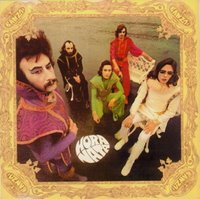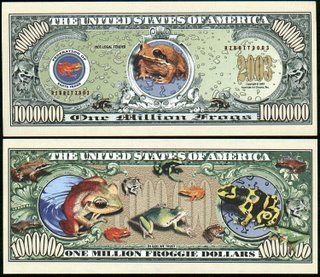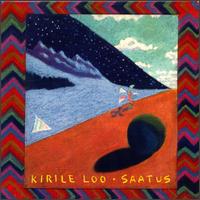
Nowadays, three decades after the zenith of progressive rock, and having been witnesses of its demise around 1979, we can consider ourselves able to reach several interesting conclusions. One of them is, of course, that prog rock itself was the smartest son of Mother Psychedelia, another conclusion (among many) is that the internationalization of progressive rock (a phenomena that started around 1971), lead to the development of certain characteristics that could be (in a very broad and loose sense of course) assigned to each country.
We could say for example that the birth of Zeuhl in France permeated many bands and created a solid movement which is avant-garde, and also very influential, but which is above all, very much French.
The same can be said about Kraut-rock. The quality here is "cold logic & brain", synth-driven intellectuality, techno-teutonic discipline. Very German.
And the Italians, are baroque, delicate and symphonic. And deliciously Italian.
The list could go on and on.
They are generalizations and of course as any generalization these could lead to many mistaken preconceptions. But they are also helpful hints for those of us who teach history of rock, to understand certain bands and movements.
So we need to reach to a definition of Belgian prog.
I believe that in Belgium things had two sides during the 80’s. One side was occupied by bands like Machiavel or Banzai (Recently posted in this blog) both under the influence of British Prog (Yes, Genesis , etc)
The other side was immersed in deeper avant-garde waters. Belgium was the home land of extraordinary bands like Univers Zero or Present, Godfathers of Chamber Rock, a Prog sub-genre close to classical avant-garde and sometimes with a sinister and somber quality.
In the Middle ground between both sides we find the exquisite Cos. A band whose leader, Daniel Schell, was an adept to occultism and Alchemy and thus was not afraid to experiment or even go cryptic when he felt it was needed to.
The other notable member of Cos, and probably the person responsible for Cos, peculiar personality was Pascale Son, singer and Oboe player whose style had influences of Flora Purim, Ursula Dudziek or Gayle Moran, that is, she used her voice as another instruments, improvising, making articulated sounds and explosive onomatopoeias, thus going well beyond the restrictions of the lyrics, specially in concerts, This made Cos a great band to see live.
Viva Boma is a very diverse album. It opens with the short, spacey and ahead of its time track named “Perhaps next record” which sounds like Ozric tentacles but twenty years before them.
Then it goes to the pseudo African (of Belgian-Congo rendition if you like) Viva Boma, which gives the name to the album.
After those two tongue-in-cheek short experiments the album enters the realm of Canterbury, jazz, odd instrumental passages, hard psych and other sound weavings that remind us of Hatfield and The North, Robert Wyatt, Henry Cow, Hawkwind and Floyd.
It contains a classic: L’idiot Leon. And a million great moments.
In a way, I think that Viva Boma is an album of draft notes. It has so many ideas, so many inventions that it is like a treasure for every experimental musician, because here a musician will find unfinished drawings, waiting to be perfected, developed, waiting to be born.
This edition comes with 4 extra tracks. One of them is truly marvelous.
In 1977 I fell in love with Pascale Son, but I never got to meet her so my love remained unspoken over the years. Perhaps next incarnation.
Keep Listening…!!!
Cos - Viva Boma...
 Hi folks! This time we are in Indonesia with one of the greatest asian progressive rock masterpiece..here is a review i found:
Hi folks! This time we are in Indonesia with one of the greatest asian progressive rock masterpiece..here is a review i found:














































